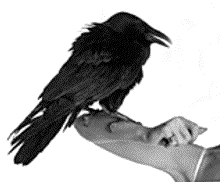Redaktør: Marie Svarre Nielsen, CNV.
Annoncering af møder i Hugin og Munin, tilmelding, afmelding, og andet:
E-mail odinsravne@gmail.com

Åbent netværk for videnskabsfilosofi og videnskabshistorieNYHEDSBREV NR. 205 2. MARTS 2006 |
|
Nyt om aktiviteter indenfor Videnskabshistorie og Videnskabsfilosofi og tilgrænsende områder f.eks. Videnskab, teknologi og samfund, Forskning i forskning, Videnskabsteori, Videnskabsetik, Videnskabssociologi, Bioetik, Forskningspolitik, Naturfilosofi, Videnskabsformidling. Redaktør: Marie Svarre Nielsen, CNV. Annoncering af møder i Hugin og Munin, tilmelding, afmelding, og andet: E-mail odinsravne@gmail.com |

|
Niels Bohr Archive's History of Science Seminar:1931, the year of living dangerously: The Russian Delegation and the Second International Congress of the History of Science
Once again, there will be a lecture in our irregular series of seminars. The field of history of science has developed sufficiently that one of its representatives can turn to a crucial event in his own field, and even reinterpret it in relation to earlier descriptions of the event. I look forward to seeing as many of you as possible at the seminar. |
Tuesday 7 March 2006, 14.15
|
Dirk Baecker and John Deely:The form of the firm, or towards a network model of organizational choice and Why semiotics is foundational for a postmodern philosophy of knowledge
Time and place: |
Professor of Philosophy and Semiotics John Deely at the University of St Thomas, Houston, and Executive Director of the Semiotic Society of America will speak about: |
HUGIN og MUNIN er et elektronisk nyhedsbrev for aktiviteter indenfor videnskabsteori, videnskabsfilosofi, videnskabshistorie, videnskabssociologi og tilgrænsende emneområder. Det udsendes af Center for Naturfilosofi og Videnskabsstudier, Københavns Universitet, for at styrke kontakten mellem grupper og enkeltpersoner indenfor de nævnte fagområder.
|